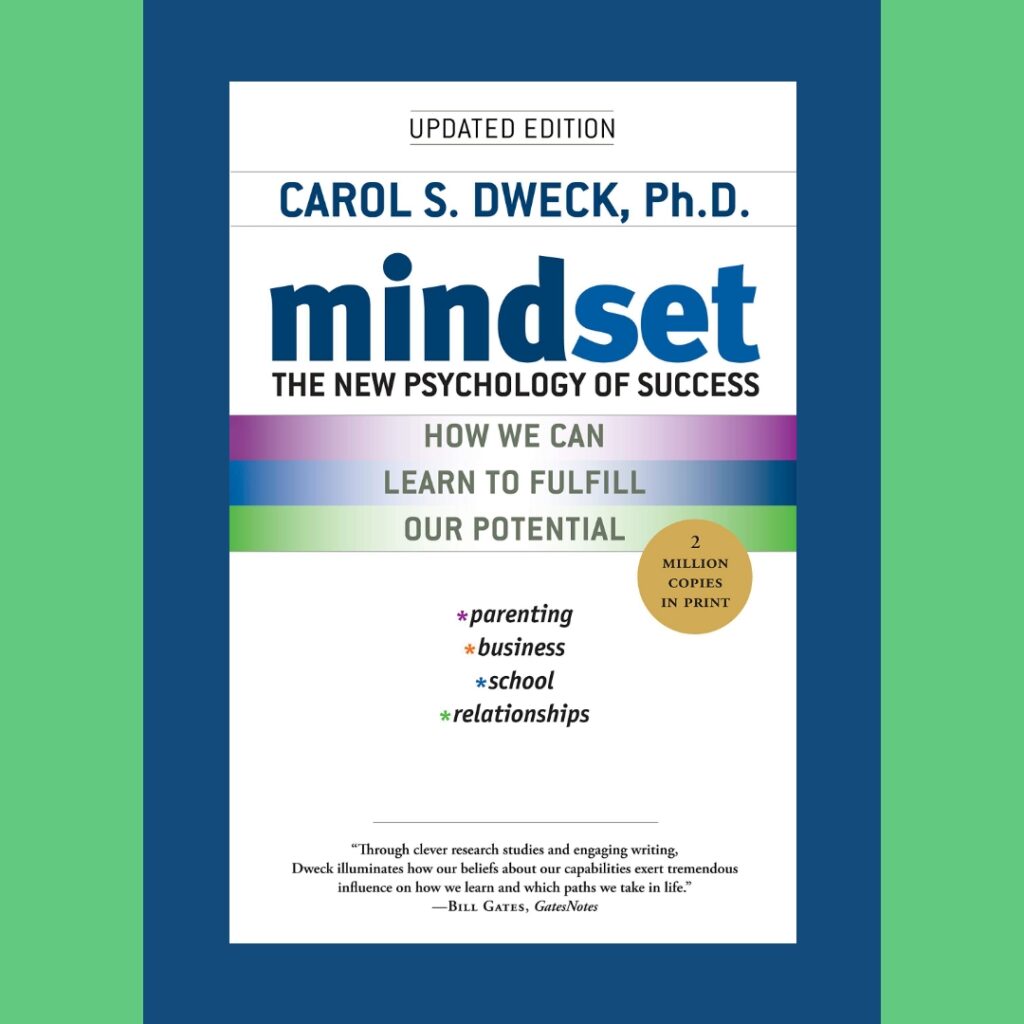
Book of the Week: Mindset: The New Psychology of Success
Published by Smart Office
Title: Mindset: The New Psychology of Success
Author(s): Carol S. Dweck, PhD
Publisher: Ballantine, 2007
Find it on Amazon ↗
Find it on GoodReads ↗
Find it on Barnes & Noble ↗
WHY WE LOVE IT:
We all know that one person who seems to know just about everything. Whatever the topic – politics, history, technology, science, psychology, sports – they have an opinion, an anecdote, and something factual to contribute to the conversation. Have you ever wondered how they got that way? Is it just that some people are naturally smarter? Or is something else at play?
We used to think that some people were just naturally smarter than their peers, and certainly there are people who have demonstrably different intellects. But the majority of humans fall within a few dozen IQ points of each other, and the most knowledgeable and skilled people in any organization are not always those with the highest IQs. Indeed, the prevalence of curious, creative, and entrepreneurial college dropouts in technology and industry is an indication that the opposite may be true.
The idea that we are born with a pre-determined IQ and intellectual capacity is called a “fixed mindset,” according to Stanford University Professor Carol Dweck. But there is evidence that people who believe they can always grow and learn – those with a growth mindset – live fuller, more extraordinary lives. A person with a growth mindset believes that intellectual skills like problem-solving and creativity can be cultivated through effort. People with a growth mindset are more resilient to failure, as they consider failures and mistakes opportunities for growth. Because they are less discouraged, they are more likely to keep trying. And as a result, they are more likely to learn, grow, and succeed.
So – do you have a fixed or growth mindset? Read the following statements and see if you agree:
- Our intelligence is something very basic about you that you can’t change very much.
- You can learn new things, but you can’t really change how intelligent you are.
- No matter how much intelligence you have, you can always change it quite a bit.
- You can always substantially change how intelligent you are.
If you agree more with #1 and #2, you likely have a fixed mindset. You believe that intelligence is fundamental, and that we have specific limits on our capacity to learn. If you agree more with #3 and #4, you likely have a growth mindset. If you have a fixed mindset, and you want to change? Carol S. Dweck’s Mindset is a great place to start changing your outlook and expanding your horizons.
FAVORITE QUOTES:
“True self-confidence is “the courage to be open—to welcome change and new ideas regardless of their source.” Real self-confidence is not reflected in a title, an expensive suit, a fancy car, or a series of acquisitions. It is reflected in your mindset: your readiness to grow.” – Carol S. Dweck
“It’s not always the people who start out the smartest who end up the smartest.” – Carol S. Dweck
“The passion for stretching yourself and sticking to it, even (or especially) when it’s not going well, is the hallmark of the growth mindset.” – Carol S. Dweck
BOOK JACKET SUMMARY:
After decades of research, world-renowned Stanford University psychologist Carol S. Dweck, Ph.D., discovered a simple but groundbreaking idea: the power of mindset. In this brilliant book, she shows how success in school, work, sports, the arts, and almost every area of human endeavor can be dramatically influenced by how we think about our talents and abilities. People with a fixed mindset—those who believe that abilities are fixed—are less likely to flourish than those with a growth mindset—those who believe that abilities can be developed. Mindset reveals how great parents, teachers, managers, and athletes can put this idea to use to foster outstanding accomplishment.
Explore Smarticles:
Smarticles by Solution:
Smarticles by Industry:
Follow Us on Social Media:




